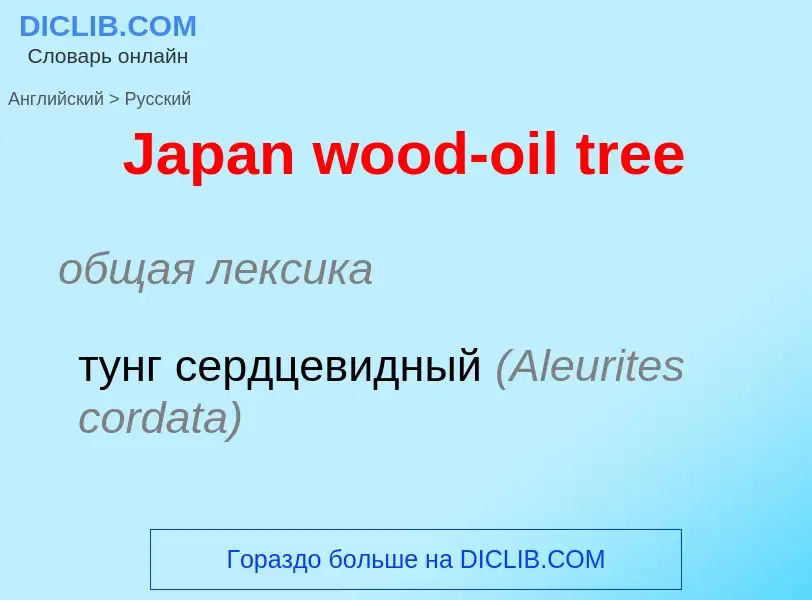Translation and analysis of words by ChatGPT artificial intelligence
On this page you can get a detailed analysis of a word or phrase, produced by the best artificial intelligence technology to date:
- how the word is used
- frequency of use
- it is used more often in oral or written speech
- word translation options
- usage examples (several phrases with translation)
- etymology
Japan wood-oil tree - translation to russian
общая лексика
тунг сердцевидный (Aleurites cordata)
[tʃai'ni:zwudɔil]
синоним
Wikipedia
.jpg?width=120)
Tea tree oil, also known as melaleuca oil, is an essential oil with a fresh camphoraceous odor and a colour that ranges from pale yellow to nearly colourless and clear. It is derived from the leaves of the tea tree, Melaleuca alternifolia, native to southeast Queensland and the northeast coast of New South Wales, Australia. The oil comprises many constituent chemicals and its composition changes if it is exposed to air and oxidizes.
Commercial use of tea tree oil began in the 1920s, pioneered by the entrepreneur Arthur Penfold. As of 2017 the global tea tree oil market was valued at US$39 million.
As a traditional medicine, it is typically used as a topical medication in low concentrations for the treatment of skin conditions, but there is little evidence of efficacy. Tea tree oil is claimed as useful for treating dandruff, acne, lice, herpes, insect bites, scabies, and skin fungal or bacterial infections. However, there is not enough evidence to support any of these claims due to the limited amount of research conducted on the topic. Tea tree oil is neither a patented product nor an approved drug in the United States, although it is approved as a complementary medicine for aromatherapy in Australia. It is poisonous if consumed by mouth, and unsafe to use on children.

.jpg?width=200)

